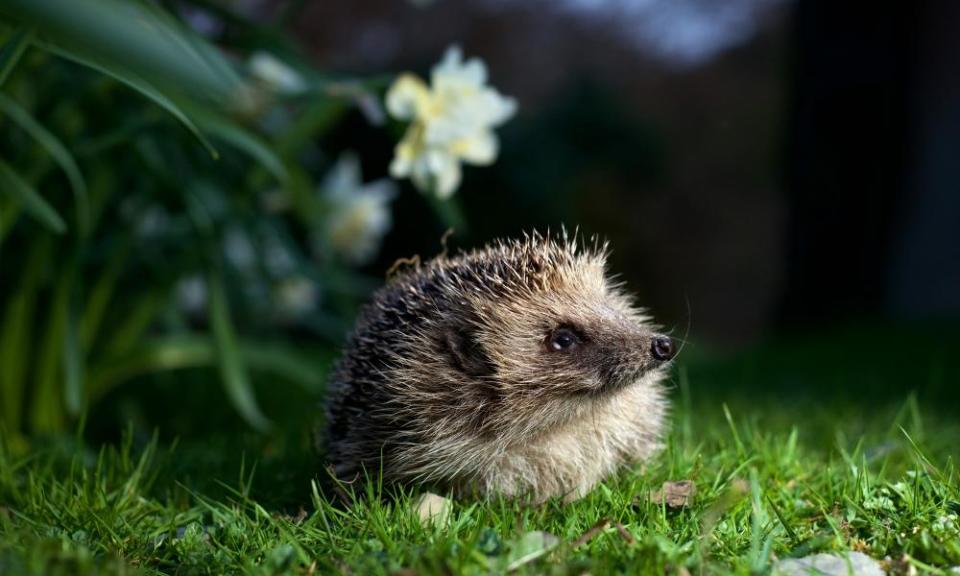Ordinary people are doing vital wildlife work. How? Counting hedgehog homes | Hugh Warwick

Today sees the launch of the “hedgehog housing census”. All over the country, thousands of people are going to the trouble and expense of building or buying hedgehog homes. We want to know how important this is to the lives of one of our most loved animals – and how we can improve the way we help hedgehogs in the future.
For a hedgehog scientist – and believe me, there are such things – gathering the volume of information required to make this a meaningful study cannot be done alone. They would need to get into thousands of gardens, assess the structures, what they are made of, where they are situated. They would also need to see what other features the garden had that might encourage hedgehogs, such as access. One of the key messages from our Hedgehog Street campaign is the necessity to make small holes, around the size of a CD case, at the bottom of fences and walls to allow the animals to roam.
Science is seen as something only specialists can do, but this idea is being challenged. This census is not the first
So how do we get the information? How do we find out what style of house works best? Well, we do that by recognising the real capacity members of the public have to provide valuable data. Science is seen by many as something that only specialists can do, but this idea is being challenged with many “citizen science” projects. This housing census is not the first.
Hedgehog research lends itself very well to citizen science. The animal is impossible to confuse with any other species, people love them, and they share our gardens. Add to this the very real problem of dramatic population decline – down by about a third in urban areas and more than half in rural areas since the turn of the century – and we have motivation to act.
We started using citizen scientists for hedgehogs over 10 years ago, when the British Hedgehog Preservation Society joined forces with the People’s Trust for Endangered Species (PTES) and recruited more than 20,000 people to take part in our “hogwatch” survey. PTES runs Living with Mammals – a survey of urban wildlife that provides clear evidence of hedgehog population decline. They also run Mammals on Roads – surveying rural areas through the rather gruesome count of road casualties. Again, this shows that hedgehogs are being squashed less frequently, not because they are getting faster or more clever, but because there are less of them.
The contributions of thousands of people are vital to increasing our understanding of what is happening. And it is not just hedgehogs that benefit from members of the public becoming engaged in research; ornithologists got there long before us. Our understanding of the lives of birds has been transformed by the small unique rings applied to the legs of individuals through the work coordinated by the British Trust for Ornithology. Most of the people trained to do this are not “scientists” – but are part of the largest research department we have in the University of Life.
The empowerment that comes with being involved in these research projects is tangible. The first step might be small, such as marking a sighting on the Big Hedgehog Map, but it is a gateway to a deeper connection with our wider environment.
This step is also a way into the virtuous circle that citizen science creates. Engagement with research generates data that improves our ability to guide people into taking action to help hedgehogs. Seeing the return of hedgehogs to a garden is such a thrill, and will encourage more attention to be paid to the research, generating more data and refining our advice.
Once you have seen how important your contribution can be to hedgehogs, you should have the confidence to look wider. We can all make a difference if we get engaged. So start now. Join the hedgehog housing census, help hedgehogs and maybe surprise yourself with where the journey takes you.
• Hugh Warwick is a writer and ecologist

 Yahoo News
Yahoo News 